Software Engineering is one of the four distinctive disciplines in the “Double First-Class” construction plan of East China Normal University. The mission of the Software Engineering College is to cultivate high-end software talents that meet the strategic needs of the country and the development needs of society, in line with the school’s goal of “excellence in education.” Innovation and entrepreneurship education is an important way to achieve excellence in education and is a key component of the college’s student work, academic affairs, and graduate work.
Over the past five years, the Software Engineering College has achieved good results in exploring mechanisms for innovation and entrepreneurship, building platforms, industry-education cooperation, and social services.
Leveraging Discipline Advantages, Improving Teacher and Student Incentives, Promoting Full Participation, and Exploring a Tiered Training Mechanism
Software Engineering is one of the key disciplines in the school’s “Double First-Class” initiative, ranking in the A category in the Ministry of Education’s fourth round of discipline evaluation, and has been ranked second for three consecutive years in the “Soft Science China’s Best Disciplines” list, becoming a top discipline nationwide. The Software Engineering College strengthens students’ basic programming skills while exploring new models for cultivating innovative and entrepreneurial talents based on the Ministry of Education’s new engineering practice projects, such as “Exploration and Practice of an Excellent IT Talent Cultivation System for Intelligent Systems” and “Exploration and Practice of a Collaborative Education Model for Cyberspace Security.
The college has established an effective innovation and entrepreneurship incentive mechanism: on one hand, it provides effective incentives for students participating in innovation and entrepreneurship, using innovation and entrepreneurship achievements as important indicators in academic scholarships and recommendations for graduate studies, and has set up college-level enterprise scholarships such as Dewave, Poker, and Nezha Technology Scholarships, selecting outstanding youth/science and technology talents every other year to support and commend excellent innovative and entrepreneurial talents; on the other hand, it also recognizes the performance of project advisors, greatly enhancing teachers’ enthusiasm for guiding students in innovation and entrepreneurship.
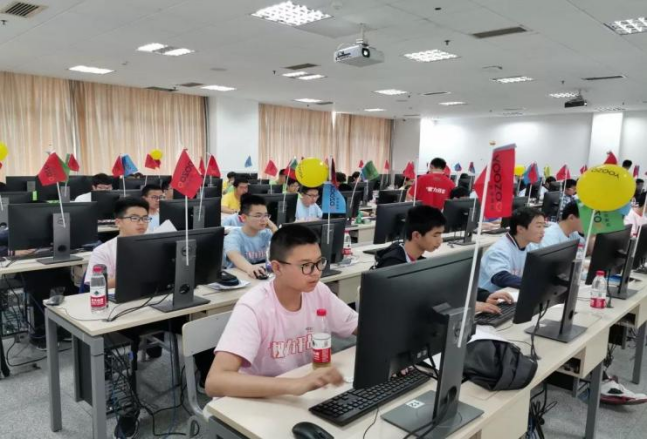
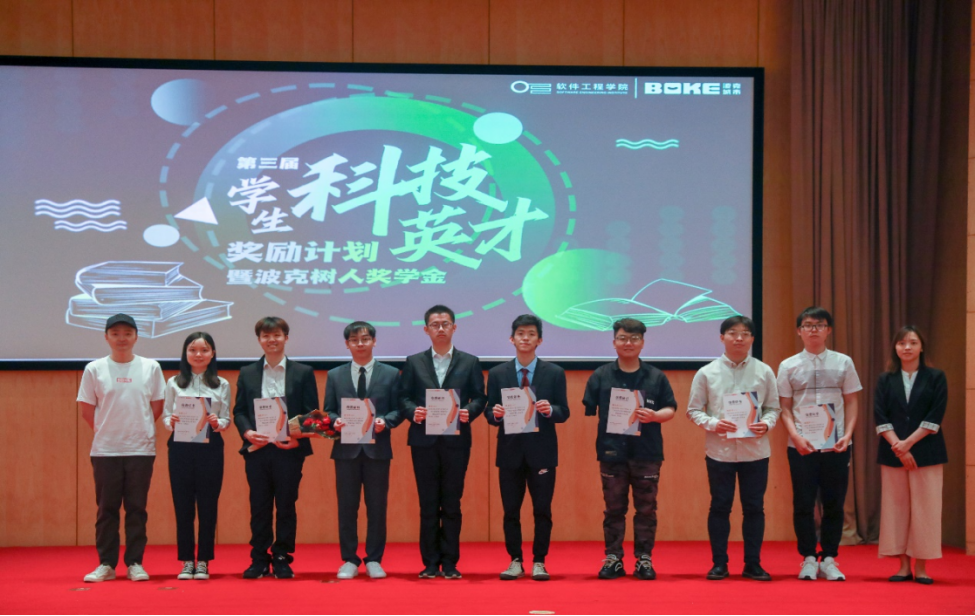
Establishing a tiered training model that combines full participation with excellence in cultivation. On the teacher side, professional guidance teachers, student work teachers, and academic affairs teachers participate from multiple angles; on the student side, a full mobilization is conducted to encourage most students with spare capacity to participate in innovation and entrepreneurship activities. On average, over 30 undergraduate innovation and entrepreneurship projects are initiated each year, involving more than 120 students and over 20 guiding teachers, significantly increasing participation from both students and teachers. After selection and streamlining, about 7 national-level and nearly 10 Shanghai-level innovation and entrepreneurship projects are initiated each year, with the rest being school-level projects. The college further incubates and cultivates through maker spaces, encouraging students to participate in various competitions at all levels. On average, nearly 100 provincial and ministerial level awards and over 30 national level awards are received each year. Over the past five years, two projects have been selected for the National College Student Innovation and Entrepreneurship Annual Conference.
Building an Innovation and Entrepreneurship Platform to Promote Student Mutual Assistance
Relying on the college’s research bases, teacher laboratories, and student organizations, a diversified, tiered, and categorized innovation and entrepreneurship team incubation platform has been established. Utilizing resources from the National Trusted Embedded Software Engineering Technology Research Center, the Ministry of Education’s Software and Hardware Collaborative Design Technology and Application Engineering Research Center, and the Shanghai Key Laboratory of High-Trust Computing, excellent undergraduates are actively organized to participate in laboratory activities, while students are encouraged to establish various student organizations, such as the Student Technology Innovation Association and the Intelligent Systems Maker Club, to achieve cross-stage (undergraduate/graduate) and cross-departmental cooperation and assistance. At the same time, relying on the school’s innovation and entrepreneurship platform, laboratories for robotics, high-end software, and intelligent systems have been established to provide diverse platforms for the implementation of student innovation and entrepreneurship projects.
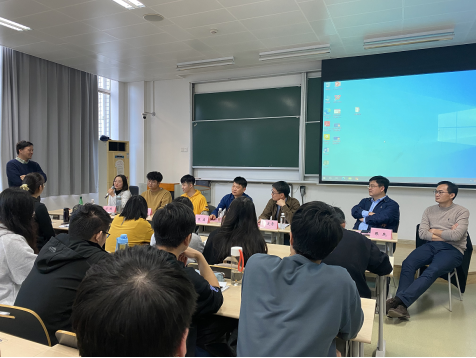
Based on Industry-Education Collaboration, Promoting Mutual Cooperation
The college closely connects with outstanding enterprises in the industry to achieve mutual cooperation. It has established close collaborations with companies such as Huawei, Xiaomi, China Electronics Technology Group, Intel, IBM, Microsoft, Xilinx, and ByteDance: on one hand, inviting industry experts to give lectures, provide competition guidance, project reviews, and internship guidance, allowing students to engage with and understand industry frontiers; on the other hand, through authorized training centers, summer camps, developer associations, and industry alliances, returning teachers’ research results and students’ new skills to enterprises. Through these two aspects of mutual interaction, sustainable and healthy development of cooperation is achieved.
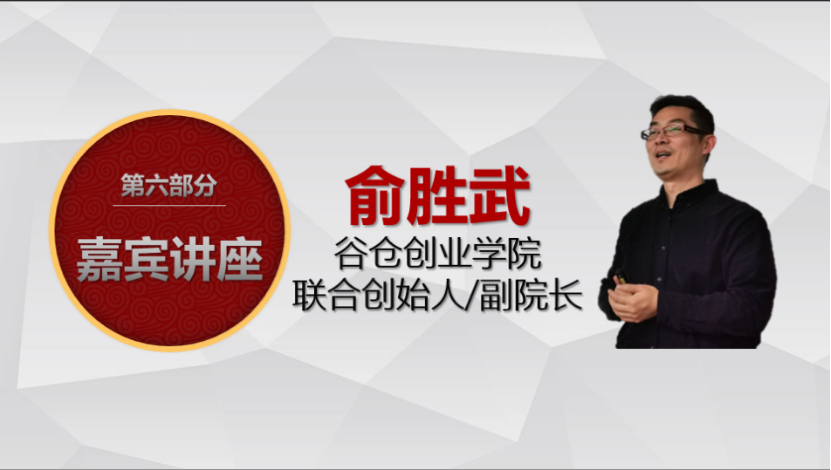
The college has undertaken multiple Ministry of Education projects for industry-academia cooperation, with several teachers participating in Huawei’s “Intelligent Base” course, and has established the first core developer association for Ascend in universities in collaboration with Huawei. Zhang Xinyu received the honor of Huawei’s “Ascend Leader,” and Chen Wenjie received the Ministry of Education-Huawei “Intelligent Base” Excellent Teacher Award; Gong Xueqing and Chen Wenjie received the Ministry of Education-Huawei “Intelligent Base” “Pillar Teacher” Award.
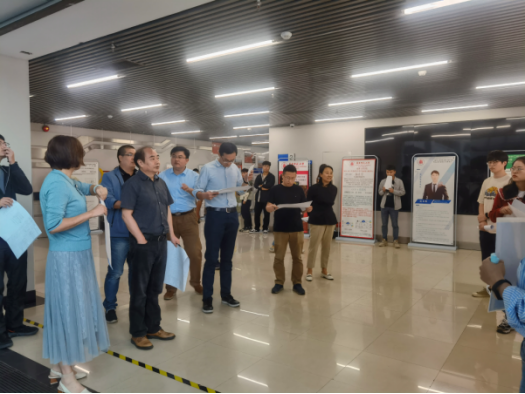
The college has also signed a special entrepreneurship financing agreement with the Shanghai branch of the Bank of China to support entrepreneurship for faculty and students.
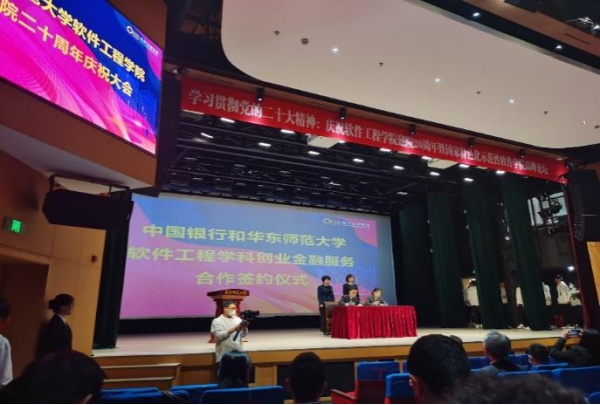
Serving Society Professionally, Cultivating National Sentiment
In innovation and entrepreneurship education, the college places great emphasis on cultivating students’ awareness of social responsibility, ensuring that innovation and entrepreneurship serve the strategic needs of the country and the development needs of society. Teacher Zhang Xinyu leads a team of graduate and undergraduate students to address the need for large-scale ecological restoration of deserts in China, proactively proposing the development of a “Tree Planting Robot Cluster Project.” With support from companies like Huawei, the prototype development of the tree-planting robot cluster has been preliminarily completed, and experiments are being conducted in the desert areas of Alxa, Inner Mongolia, which have received extensive media coverage, including reports from CCTV News Channel and in-depth reports on China Education Television.
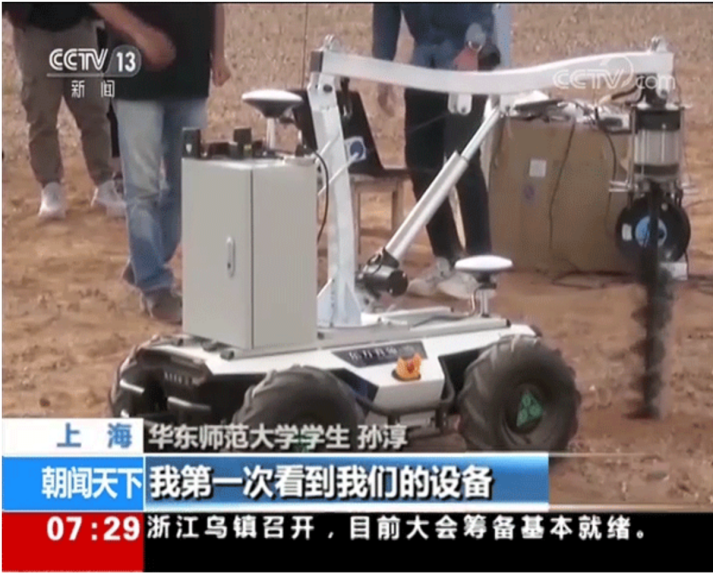
Teacher Cao Guitao has led the student work team for many years to guide the “Coding Summer” technology summer camp, providing maker training for middle school students in remote areas, receiving praise from all sides. Student projects have won the second prize in the 2018 “Zhixing Cup” Shanghai College Student Social Practice Project Competition and the Best Practice Team Award in the sixth “Finding the Top 100 National College Student Summer Practice Teams” competition in 2020.
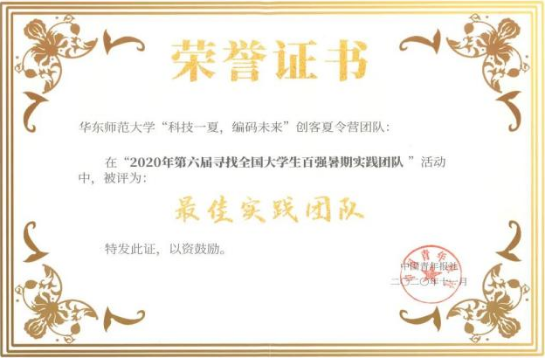
In the field of cybersecurity, the team led by Qian Jiawei and Xiong Yiwei (with guidance from teachers such as Cao Zhenfu) has won multiple awards, including the gold medal in the seventh “Internet+” competition industry track, the gold medal in the thirteenth “Challenge Cup” China College Student Entrepreneurship Plan Competition for Social Governance and Public Services, the gold medal in the first China Graduate Financial Technology Innovation Competition, the special prize in the twelfth National College Student E-commerce Innovation and Entrepreneurship Competition finals, and the first prize in the eleventh China College Student Service Outsourcing Innovation and Entrepreneurship Competition, among other national and provincial-level competition awards.
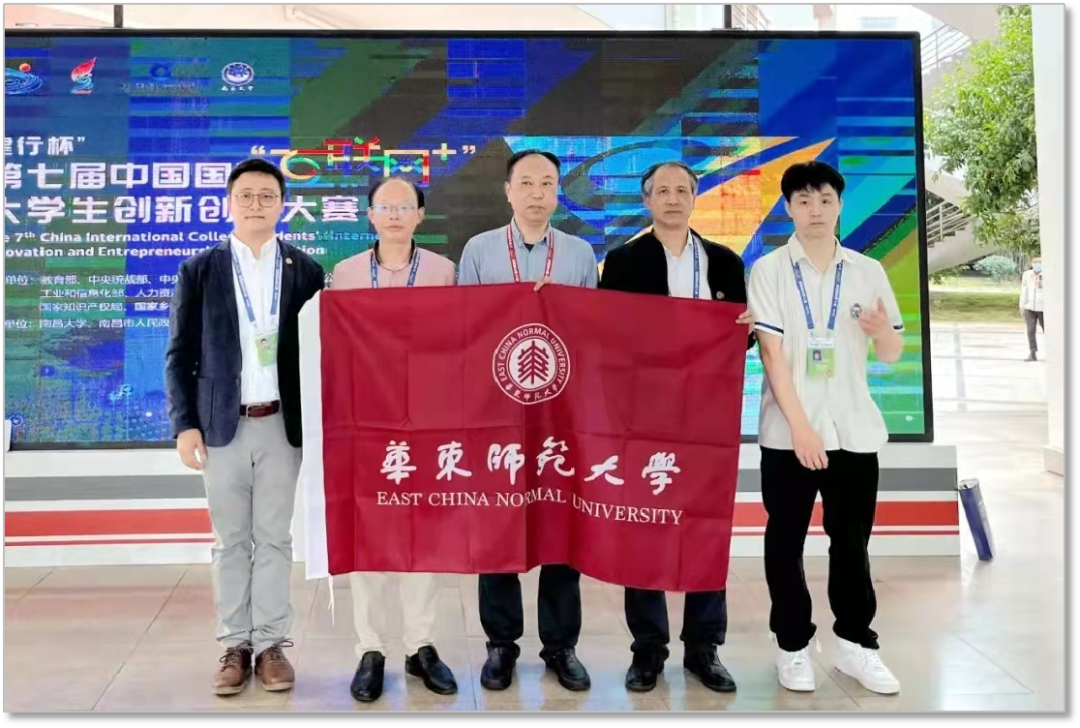
In recent years, the Software College has been repeatedly recognized as an advanced collective in innovation and entrepreneurship work at East China Normal University, with several teachers such as Cao Zhenfu, Chen Weiting, and Chen Wenjie receiving awards for advanced individuals in innovation and entrepreneurship and excellent guiding teachers. Student Qian Jiawei has been awarded titles such as “Entrepreneurship Expert” and “Innovation and Technology Expert.” The Software College continues to strive on the path of innovation and entrepreneurship education, dedicated to cultivating high-end software talents, stimulating innovative consciousness, and training entrepreneurial abilities, contributing talents and strength to the development of the national software industry.


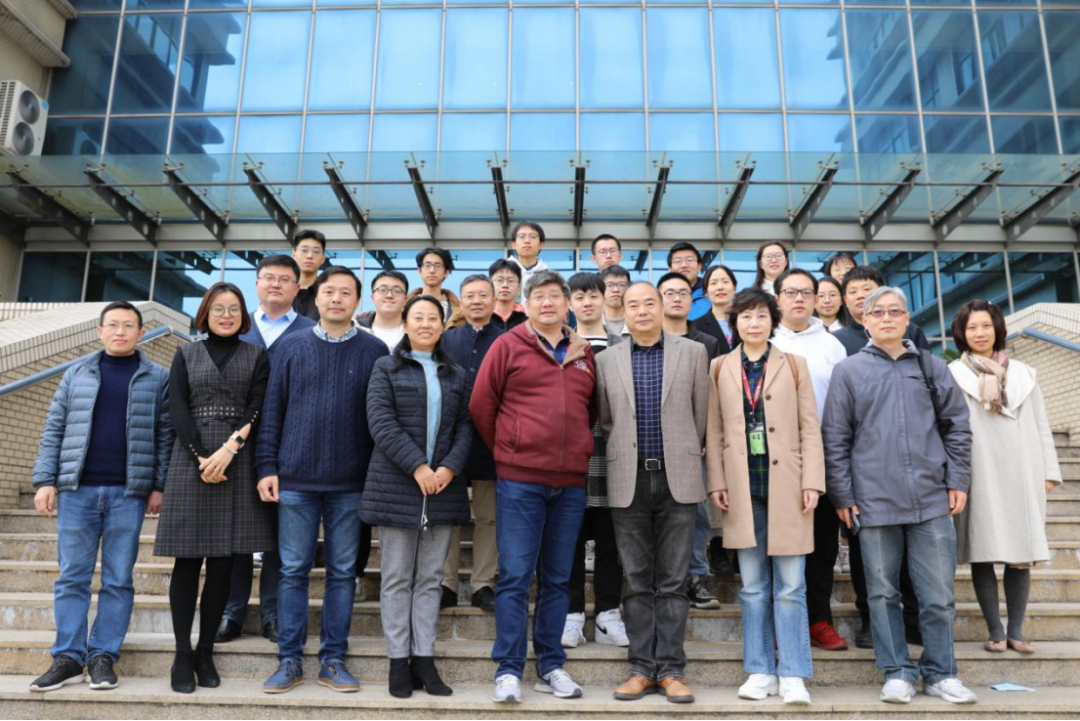
Source: Software Engineering College
Editor: Li Qian
Reviewer: Huang Yan